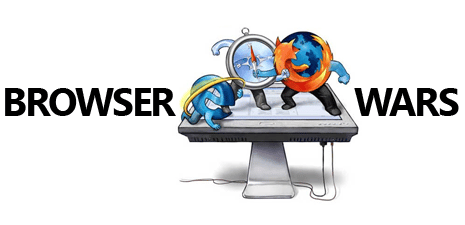
There seems to be a common theme of privacy over the past year. First with the attacks on Facebook privacy, then with the FTC No Track Proposal, and now even the most popular Internet Browsers are implementing new technology to prevent users from being tracked. Whether it stemmed from user feedback, as a response to the FTC, or some other driving force that goes unnamed, IE9, FireFox 4, and Safari 5 all feature new ways to block ads or cripple cookie tracking.
IE9 Tracking Protection
The first browser to announce their new “no track” feature was Microsoft. I won’t say how interesting this is considering Microsoft has been trailing behind their competitors in display and performance for quite some time (or maybe I will). IE9 Tracking Protection enables users to set privacy preferences with a mechanism for enforcing aspects of those preferences. Users can list they organizations they trust, blocking or allowing third-party content and controlling the information they share as they browse the web. There are already many objections to how this will actually make the web quite cumbersome for many users, slowing the browsing process and decreasing the flow of information.
Firefox’s Do Not Track feature
Nearly 8% of Firefox users already use AdBlocker Plus to remove ads, so it comes as no surprise that Firefox quickly responded to Microsoft by upping the ante. The beta of this new feature is already available on Firefox 4 and it includes a check box labeled “Tell websites I do not want to be tracked.” The browser then broadcasts a HTTP header to every website the user visits, letting the website know that the user wishes to opt-out from being tracked. “We believe the header-based approach has the potential to be better for the web in the long run because it is a clearer and more universal opt-out mechanism than cookies or blacklists,” explained Alex Fowler, Mozilla’s Privacy Lead. The obvious limitation of this feature is that it depends on the compliance of websites and advertisers. First, those entities need to build technologies to receive and interpret the header, and then they have to actually refrain from tracking the users. Since wide spread enforcement is virtually impossible, this feature basically sounds like a vehicle for the FTC to start handing out fines to the arbitrary violators of their choice. Read an article on Clickz
New Safari Reader
Though it really is branded as a “no track” feature or “ad blocker,” the Safari Reader is possible one of the most interesting implementations because it only removes the ads from a page after the user arrives on the page and decides to remove them. On the What’s New in Safari 5 page on Apple’s website, Apple states that the Reader “removes annoying ads and other visual distractions. So you get the whole story and nothing but the story.” All you have to do is click the “Reader icon” and the article appears in the new “clutter-free view.” Out of these three browsers, it seems that Safari has perhaps captured the most preferred solutions for publishers and advertisers while helping the user quickly find the meat of the content. I can also see how this would help with finding keywords deep in a document or printing documents.
Questions:
Will Publishers and Advertisers fight back?
We all know that all of the revenue of online publishers comes from advertising. The New York Times, ESPN, you name it, free content for users can’t exist without advertising. The publishers ability to provide relevant audiences for advertisers is the reason they are able to continue writing the content that is free of advertisements. If advertisers can’t serve their ads along side valuable content, believe me they will start demanding their products and services be plugged in the content itself. If you think a banner annoys the user, imagine how annoying it would be if all of our news, highlights, and entertainment was riddled with shameless advertising plugs, but publishers have to make money somehow.
Will this force Publishers to move to subscription based content models?
Just like Pandora, are users going to start paying for the “ad free” content they receive? This is obviously one way for publishers to combat a massive loss in revenues, but it will also greatly lower the circulation of content. Does this take us back to the dark ages when only those with money had access to educational resources?
If these browsers allow users to block tracking, are they also allowing users to block the browser from tracking their behavior?
I guess we’ll have to check out the terms of service. This might be a pretty interesting way for browsers to control more information on trends in user behavior that is obviously valuable to the marketplace. = cash money
Will businesses who have large user bases be able to append their service agreements to allow them to track their own users across channel?
If so, what does this mean for those with already massive user bases like Google and Facebook? Are we basically giving all the control of user behavior data to a few large entities? If users think blocking everyone else out will improve their experience they better think again.
Author
A digital marketer by background, Peter is the former CEO of TUNE, the enterprise platform for partner marketing. In 2018, he sold TUNE’s mobile measurement product to Branch, unifying measurement and user experience. He led TUNE’s efforts to bring better management technology and automation to marketing partnerships, across affiliates, influencers, networks, and business development relationships. Follow @peterhamilton


